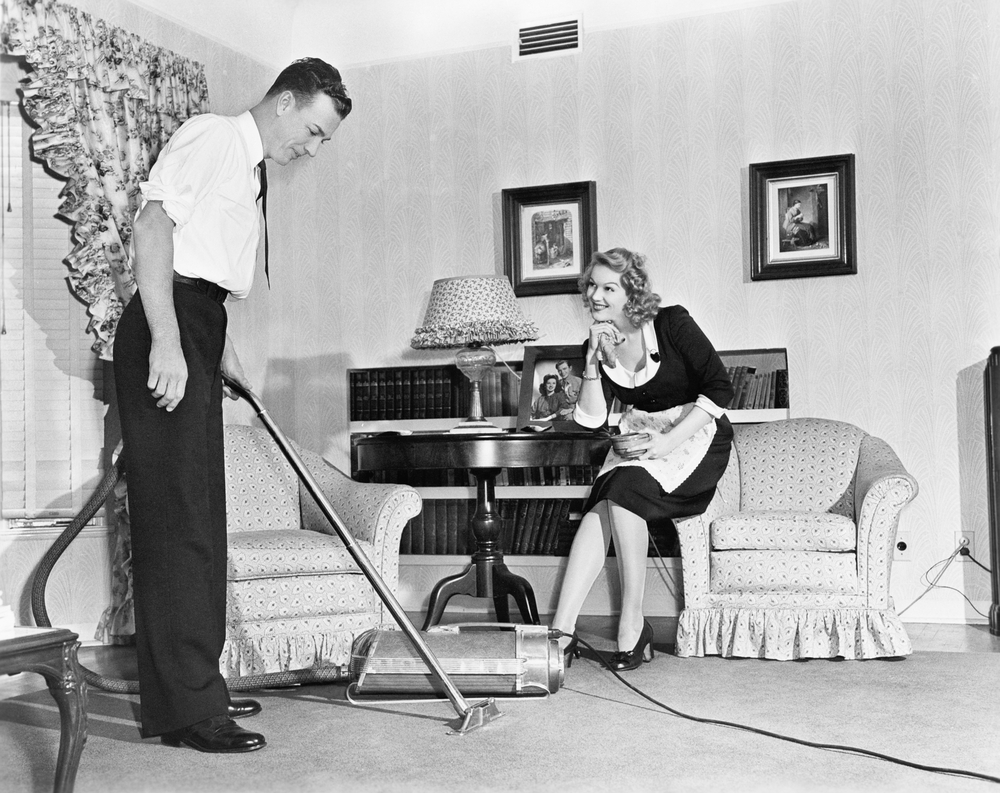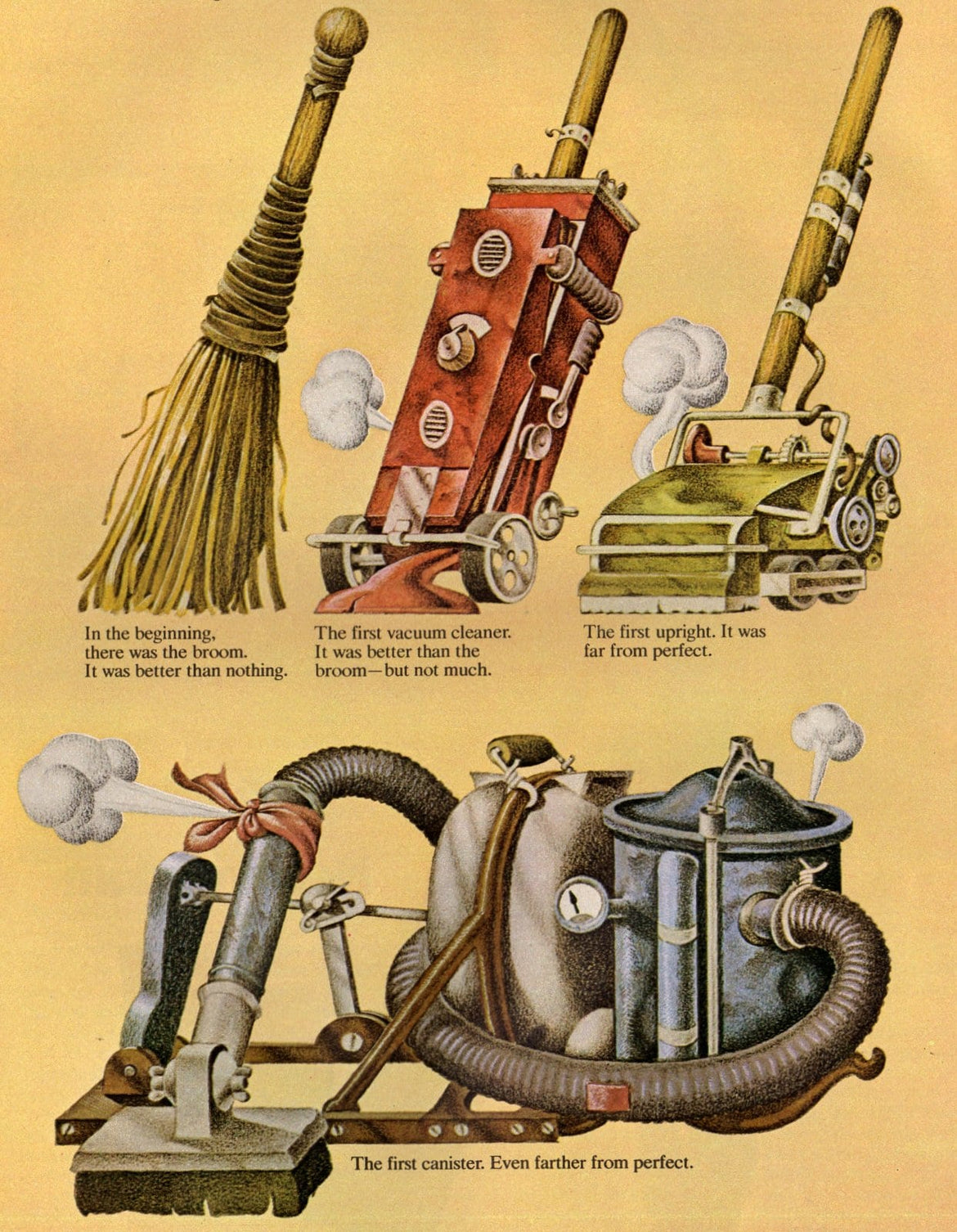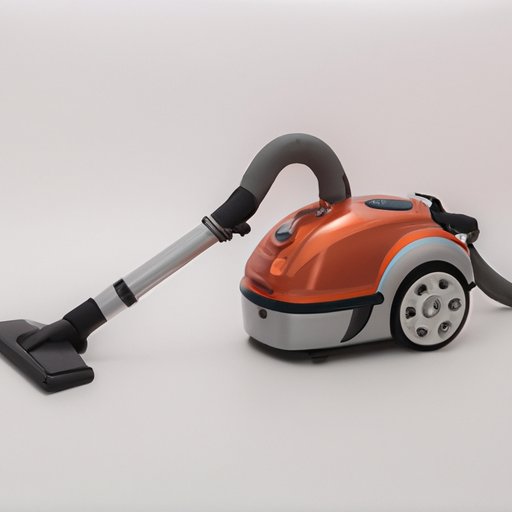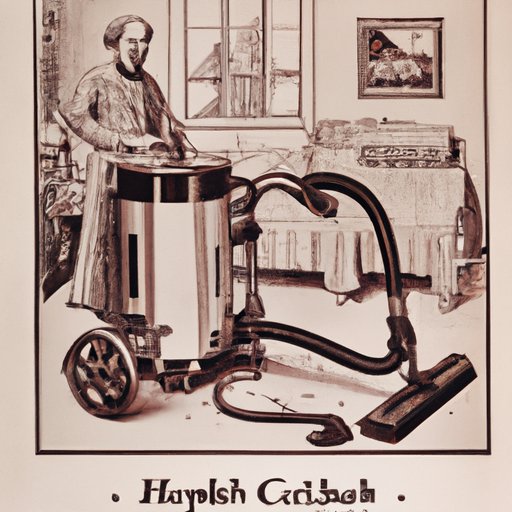How Did The Vacuum Cleaner Impact Society

Before the hum of electricity filled homes, cleaning was a laborious task, involving sweeping, beating rugs, and dusting – all contributing to a cloud of airborne particles. Then came the vacuum cleaner, a device that fundamentally reshaped domestic life and beyond.
The vacuum cleaner's impact extends far beyond mere cleanliness. It influenced public health, labor practices, gender roles, and even technological advancements. Its introduction marked a pivotal shift in societal norms and expectations related to hygiene and household management.
From Manual Labor to Motorized Cleaning
Prior to the invention of the vacuum cleaner, homes relied on manual methods for dust and dirt removal. Tasks were time-consuming and physically demanding. Sweeping often stirred up dust rather than eliminating it, posing potential health risks.
The first patent for a "carpet sweeper" was issued to Daniel Hess in 1860. However, these early models were largely ineffective. It was Hubert Cecil Booth's "Puffing Billy," a large, horse-drawn, gasoline-powered machine introduced in 1901, that truly began to revolutionize cleaning.
Booth's machine was initially used commercially, cleaning large buildings and even Westminster Abbey before the coronation of King Edward VII. Early vacuum cleaners were bulky and expensive, and not readily accessible to the average household.
Democratization of Cleanliness
The early 20th century saw innovations that made vacuum cleaners more practical for home use. Electric motors replaced gasoline engines, and machines became smaller and more affordable. This transition was crucial for widespread adoption.
James Spangler's electric suction sweeper, patented in 1908, was a significant step forward. William Henry Hoover recognized its potential and purchased Spangler's patent, leading to the establishment of the Hoover Company, a name that became synonymous with vacuum cleaners.
The Hoover Company's marketing strategies, combined with increasing affordability, propelled the vacuum cleaner into middle-class homes. Home ownership increased rapidly, and the perception of cleanliness and what was possible for the average household increased as well.
Impact on Labor and Gender Roles
The vacuum cleaner significantly reduced the time and effort required for housework. This freed up women, who were traditionally responsible for domestic duties, to pursue other activities.
Some historians argue that the vacuum cleaner contributed to the changing roles of women in society. By lessening the burden of housework, it allowed them more opportunities for education, employment, and civic engagement.
However, it's important to note that the vacuum cleaner also reinforced the expectation that women should maintain a clean home. Advertisements often targeted women, emphasizing the ease and efficiency of vacuuming, solidifying its place as a core aspect of their domestic responsibilities.
Public Health and Hygiene
The vacuum cleaner played a vital role in improving public health. By effectively removing dust, allergens, and other contaminants, it helped to reduce the spread of diseases and improve indoor air quality.
The reduction of dust mites, mold spores, and pet dander created healthier living environments, particularly for individuals with allergies and respiratory conditions. Vacuum cleaners with HEPA filters further enhanced this benefit.
The emphasis on cleanliness spurred by the vacuum cleaner contributed to a broader societal awareness of hygiene. This had far-reaching effects, influencing personal habits and public health initiatives.
Technological Advancements and Modern Vacuum Cleaners
The vacuum cleaner has undergone continuous development since its inception. From upright models to canister vacuums, stick vacuums, and robotic cleaners, the technology has evolved significantly.
Advances in motor technology, filtration systems, and battery life have led to more powerful, efficient, and convenient vacuum cleaners. Robotic vacuum cleaners, in particular, represent a significant leap forward, automating the cleaning process.
The pursuit of cleaner and more efficient vacuuming has also spurred innovation in related fields, such as material science and sensor technology. These advancements have applications beyond the realm of cleaning.
Environmental Considerations
Modern concerns about energy consumption and environmental impact have led to the development of more eco-friendly vacuum cleaners. Manufacturers are focusing on reducing energy usage and using sustainable materials.
Some vacuum cleaners are now equipped with energy-efficient motors and utilize recycled plastics in their construction. Consumers are also increasingly aware of the importance of proper disposal and recycling of old vacuum cleaners.
The future of vacuum cleaner technology may involve even greater emphasis on sustainability, with innovations such as solar-powered models and biodegradable components.
The Enduring Legacy
The vacuum cleaner has had a profound and lasting impact on society. Its influence extends beyond mere convenience, shaping our perceptions of cleanliness, influencing labor practices, and contributing to public health improvements.
From its humble beginnings as a bulky, horse-drawn machine to its modern incarnations as sleek, robotic devices, the vacuum cleaner continues to evolve and adapt to changing needs and priorities. The story of the vacuum cleaner is a testament to the power of innovation to transform everyday life.
The next time you reach for your vacuum cleaner, take a moment to appreciate the profound impact this seemingly simple appliance has had on our world.


















